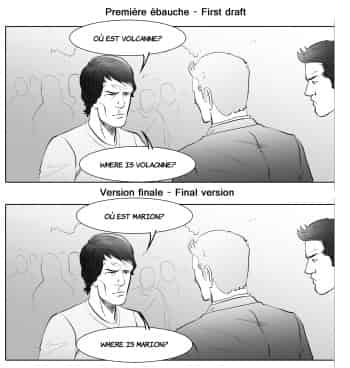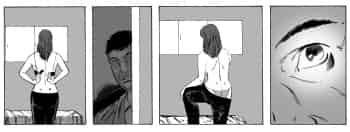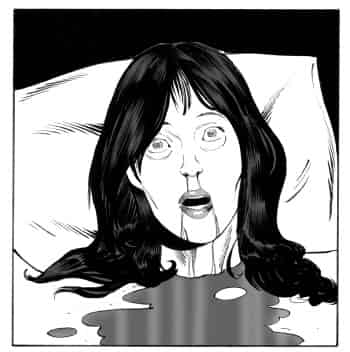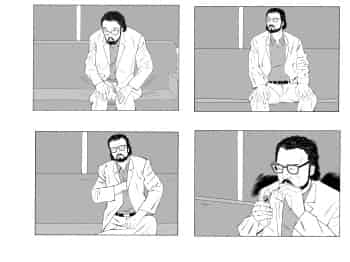
Writing
What should we write: what the author wants or what the reader wants?
We came across this analysis about “Man of Steel”:
“Some might look at that scene and ask, “What else could Superman have done?” Others might offer alternative endings to the scene. It’s not a useful conversation. It’s the usual, “Who would win in a fight?” The answer is always that the outcome is determined by the writer, and the story bends to fit that outcome. Superman killed Zod not because there was no other choice, but because the people conceiving the story wanted Superman to kill Zod. (By a majority of two-to-one, according to recent reports.)” (Andrew Wheeler, “Choice and the Moral Universe of Man of Steel’ [opinion],” June 21, 2013, http://comicsalliance.com.)
Several streams of thought collide here. On the one hand, some authors want a kind of integrity for their work, their characters and the story they have been carrying inside them, sometimes for years. Other, more practical, writers just want to be read, and in that case, it may be tempting to turn to tried-and-tested formulas to grab the audience’s attention. The conventional opinion has been that integrity should win over the forces espousing a certain artlessness. However, we believe it’s not the recipe that leads to success but the right proportion of ingredients. And that’s where an author can stand out and give his or her work a personal touch.
Is there room for subtlety in comic books? Part I
Here’s a key passage from a critique written by Darren about an X-men retrospective dedicated to “Operation Zero Tolerance”: “‘Operation Zero Tolerance’ is, in a word, blunt. With so many of the high-profile comics of the nineties, from both Marvel and DC, ‘subtlety’ is an alien concept. This is an X-Men comic where racial intolerance and prejudice are expressed through nothing short of attempted genocide. On the one hand, it’s very clearly the mutant prejudice idea pushed to its logical extreme. On the other hand, the notion of the United States government even passively condoning an attempted genocide feels like it robs the franchise of the social relevance which had made it so compelling and intriguing.”
But is subtlety really necessary? We’ve read parts of this saga and our biggest beef is that some events happen too fast and with rather tenuous links. But otherwise, it wasn’t a bad comic. (Darren, “X-Men: Operation Zero Tolerance (Review/Retrospective),” July 29, 2013, http://them0vieblog.com)
A few months ago, Jozef Siroka, in a critique of “Man of Steel” went in the other direction: “From Christopher Nolan’s Batman and Daniel Craig’s James Bond, the idea of bringing back earth heroes who used to easily accommodate the fantastic—both witnesses and actors in a world that’s recognizable but entirely fictional—has been largely approved by the public and critics. Critics especially, who were often too quick to equate the realism of the new versions with their artistic quality. Agent 007 and the Black Knight act like adults, and so we, as adults, are grateful. [He adds:] The challenge is to organically integrate the presence of a supernatural character in the natural world.” (Jozef Siroka, «Man of Steel : contre le super-héros «réaliste », June 18, 2013, www.lapresse.ca)
For Siroka, the loss of fantasy comes at the price of a more realistic perspective. So we see that the playfulness of the comic form can become obscured by an overly cerebral approach.
Drawing inspiration from the characters
We were, after the fact, disappointed with the ending of the story “Virus” (Part III). We didn’t like how the team seemed totally indifferent to Marion’s death. So, “Freaks” gave us a unique opportunity to rectify the situation and, especially, to create more dramatic dynamics within the intervention team.
The vagaries of writing (The Kidnapping)
We didn’t really know how we were going to end this story. Would Woolf kill himself? Would the little boy shoot his kidnaper? Would the police launch an assault? We were hesitating between these options, knowing only that, in the end, the boy had to get out safely, and that this story was only the beginning of a longer story arc.
Small adjustments (Virus Part III)
At the end of “Virus Part III,” Fabien, Benson and Jason are outside the hotel and Fabien asks where Marion is. But in the original script he asked where Volcanne was. We decided to make this change because we felt the trio had left Marion too quickly, seemingly with little thought for their colleague. This little adjustment was all that was needed to correct a flaw in the script.
To shock for shock’s sake? No thanks.
In the story “Tête-à-tête,” there is that image of Cesar’s decapitated mistress. The goal of that image wasn’t to shock the reader. And, really, it’s easy to find much gorier image online. But the drawing’s purpose, in addition to its dramatic effect, was to show Votan’s resolve and to illustrate how far he is willing to go to inspire terror.
The image as scripting tool
In the story “Tête-à-tête,” when Cesar meets Votan for the first time, he is naturally intimidated. However as he starts to understand Votan’s intentions, Cesar regains his self-confidence. We wanted this movement in the power relations to be visible in the drawings. That’s why we decided to show Cesar’s posture on the sofa.
Should authors censor themselves?
Graeme MacMillan raises a troubling question: “I wonder what comics we’ve missed out on because creators self-censored or were too afraid to push ideas that they initially wanted to do, but felt would never get published…?” (“The Biggest Blockade to the Creation of the Content Is Creators Not Choosing to Create the Content,” Newsarama, May 21, 2013.)
We’ve already talked about the changes we made to our stories because we felt our initial ideas weren’t strong enough, or on the contrary were too strong, and how that caused the story to implode. Are we talking about censorship here or just clarity? Naturally the choices we make create a direction for our stories.
Are spoilers damaging?
Graeme McMillan asks a very good question about the damage that spoilers actually cause: “How important are spoilers, anyway? I wonder that, sometimes. There are plenty of stories that rely on a shock last minute reveal for a certain amount of drama and tension, of course, but that is rarely the only value of a story; there has to be something more to it, surely, otherwise the story can only be read once, because any re-reads would be pointless in light of you knowing the big secret. While knowing a spoiler ahead of time can rob the story of one kind of appeal, shouldn’t good stories have more to offer, and therefore have a different-yet-equal appeal even if you know the ending ahead of time…?” (“How Bad Are Spoilers, Anyway?” Newsarama, May 13, 2013). So spoilers are only really damaging if the story doesn’t have any consistency or any real depth that would incite a reader to come back to it.







